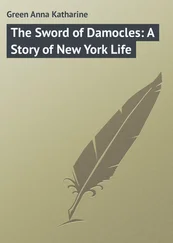Ann Beattie - The New Yorker Stories
Здесь есть возможность читать онлайн «Ann Beattie - The New Yorker Stories» весь текст электронной книги совершенно бесплатно (целиком полную версию без сокращений). В некоторых случаях можно слушать аудио, скачать через торрент в формате fb2 и присутствует краткое содержание. Жанр: Старинная литература, на английском языке. Описание произведения, (предисловие) а так же отзывы посетителей доступны на портале библиотеки ЛибКат.
- Название:The New Yorker Stories
- Автор:
- Жанр:
- Год:неизвестен
- ISBN:нет данных
- Рейтинг книги:5 / 5. Голосов: 1
-
Избранное:Добавить в избранное
- Отзывы:
-
Ваша оценка:
- 100
- 1
- 2
- 3
- 4
- 5
The New Yorker Stories: краткое содержание, описание и аннотация
Предлагаем к чтению аннотацию, описание, краткое содержание или предисловие (зависит от того, что написал сам автор книги «The New Yorker Stories»). Если вы не нашли необходимую информацию о книге — напишите в комментариях, мы постараемся отыскать её.
The New Yorker Stories — читать онлайн бесплатно полную книгу (весь текст) целиком
Ниже представлен текст книги, разбитый по страницам. Система сохранения места последней прочитанной страницы, позволяет с удобством читать онлайн бесплатно книгу «The New Yorker Stories», без необходимости каждый раз заново искать на чём Вы остановились. Поставьте закладку, и сможете в любой момент перейти на страницу, на которой закончили чтение.
Интервал:
Закладка:
Then they began talking almost every night, until very late. She got up in the mornings without enough rest, and rubbed one finger across the dark, puffy circles under her eyes. She asked him how his studies were coming; she was worried that he was not paying enough attention to his schoolwork. He told her everything was all right. “I’m way ahead of the game,” he said. But she knew something was wrong. She offered to have his professor to dinner—the one who would write him a recommendation to law school—but Sam refused. It wouldn’t be any trouble, she told him. No, he didn’t want to impose on her. When she said again that she wanted to do it, he told her to forget it; he didn’t care about law school anymore. That night, they stayed up even later. The next day, when she tried to lead the Junior Chorus, she could hardly get out more than a few phrases of “The Impossible Dream” without yawning. The class laughed, and because she hadn’t had enough sleep she became angry with them. That night, she told Sam how embarrassed she was about losing her temper, and he reassured her. They drank several beers. She expected Sam to go into his room and get another six-pack, but he didn’t rise. “I’m not happy,” Sam said to her. She said that he had been working too hard. He waved the thought away. Then perhaps the textbooks were at fault, or his professors weren’t communicating their enthusiasm to the class. He shook his head. He told her he hadn’t looked at a book for weeks. She became upset. Didn’t he want to become a lawyer? Didn’t he want to help people? He reminded her that most of the newspapers and magazines she subscribed to pointed out that the country was so messed up that no one could help. They were right, he said. It was useless. The important thing was to know when to give up.
Ellen was restless that night and slept very little. When she left in the morning, she saw that his door was closed. He was not even going through the pretense of going to classes. She would have to do something to help him. He should stay in school. Why should he quit now? Ellen had trouble concentrating that day. Everything the students did irritated her—even the usual requests for pop favorites. She kept control of herself, though. It was not right to yell at them. She let one of the students in Junior Chorus—a girl named Alison, who was taking piano lessons—play the piano, while she sat on her stool, looking out over the blur of faces, joining without enthusiasm in the singing of “Swanee River.” Teaching had become meaningless to her. Let her husband vacuum those pastel rugs in their old house; let someone else teach these students. She knew that “Swanee River” was a trivial, silly song, and she wanted three o’clock to come as badly as the students did. When the bell finally rang, she left at once. She bought pastries at a delicatessen, selecting cherry tarts and éclairs. She planned to have a good dinner, and then a discussion in which she would be firm with Sam. She must make him care again. But when she got home Sam wasn’t there. He didn’t come home until ten o’clock, after she had eaten. She was very relieved when he came in.
“I was at your husband’s,” he said.
Was this a joke?
“No. He called when you were teaching. He wanted to ask you about some paper. We started talking about law school. He was disappointed that I’d decided not to go. He asked me to come over.”
Had he been talked into going to law school?
“No. But your husband is a very nice man. He offered to write me a recommendation.”
“Take it!” she said.
“No, it’s not worth the hassle. It’s not worth all those years of study, competing with punks. What for?”
What was there better to do?
“See the country.”
“See the country!” she repeated.
“Get a motorcycle. Go out to the Coast. It’s warm there. I’m sick of the cold.”
There was nothing she could say. She decided that she was like a mother whose son has just told her he wants to design clothes. Couldn’t he do something serious ? Couldn’t he be an architect? But she couldn’t say this to him. If he had to go West, couldn’t he at least buy a car? He told her it had to be a motorcycle. He wanted to feel the handlebars get warm as he got farther west. She went into the kitchen and got the box of pastries. On the way back to the living room, she clicked the thermostat up two degrees. They drank coffee and ate the éclairs and little tarts. It was a celebration; he was going to do what he was going to do. She said she would go with him on the weekend to look for a motorcycle.
On Monday he left. Just like that, he was gone. He left all his things in his room. After a few days, she realized that it would be practical to store his things in the attic and use his room for a study, but she couldn’t touch anything. She continued to take care of the room, but not every day. Sometimes when she felt lonely, she would go in there and look at all his books in the bookcase. Other times, she would clean the house thoroughly at night, with a burst of energy, as if to make ready for his return. One night after she cleaned, she took some bottles of beer to put in the refrigerator, so they would be cool when she came home from work. She did not lose her temper anymore, but her programs were no longer innovative. Alison’s piano playing guided the Junior Chorus through the world, sad and weary, through the winter and into the spring.
One night, her husband called (he was her ex-husband now). He was still trying to track down the safe-deposit box where his mother had placed her jewelry. Quite a lot of old pieces were there; there were a few diamonds and some good jade. His mother was old; he didn’t want to disturb her, or make her think of dying, and he was embarrassed to let her know he’d misplaced her instructions. She said she would look for the paper and call him back, and he asked if he could come and look with her. She said that would be all right. He came that night, and she offered him a beer. They looked through her file and found nothing. “The paper has to be somewhere,” he said, full of professional assurance. “It has to be somewhere.” She gestured hopelessly at the rooms of the house; it wasn’t in the bathroom or the kitchen or the living room, and it certainly wasn’t in Sam’s room. He asked how Sam was doing, and she told him she hadn’t heard from him. Every day she expected some word from him, but none had come. She didn’t tell him that—just that she hadn’t heard. She drank several beers, as she did every night. They sat together in the living room, drinking beer. She asked if he would like something to eat, and fixed sandwiches. He said he would go, so she could get up in the morning. She gestured at the rooms of the house. He stayed, and slept in her bed.
In the morning, Ellen called the school and said she had a cold. “Everybody is sick,” the switchboard operator told her. “It’s the change in the weather.” She and her husband took a drive and went to a nice restaurant for lunch. After lunch, they went to his house and hunted for the paper. They couldn’t find it. He fixed her dinner, and she stayed at his house that night. In the morning, he dropped her off at school on his way to work.
A girl in Junior Chorus came up to talk to her after class. Shyly, the girl told her she played the piano. Could she also play the piano for the chorus sometime? Alison played very well, the girl said quickly; she didn’t want Alison to stop playing, but could she try sometime, too? She could read music well, and she knew some classics and some Gilbert and Sullivan and a lot of popular songs, too. She mentioned some of them. Ellen watched the girl leave, blushing with nervousness at having spoken to the teacher and proud that she would be allowed to play the piano at the next meeting. She was a tall girl, with brown hair that had been cut too short; her glasses, which were harlequin-shape, looked more like something the girl’s mother would wear. Ellen wondered if Sam had a girlfriend. If the girlfriend had brown hair, did it get tangled in the wind on the motorcycle? Sam would have been proud of her—the way she put the new pianist at ease, feigning interest in the girl’s talent, thanking her for volunteering. The next afternoon, she thought of Sam again. He would have found it funny that the brown-haired girl also chose to play “Swanee River.”
Читать дальшеИнтервал:
Закладка:
Похожие книги на «The New Yorker Stories»
Представляем Вашему вниманию похожие книги на «The New Yorker Stories» списком для выбора. Мы отобрали схожую по названию и смыслу литературу в надежде предоставить читателям больше вариантов отыскать новые, интересные, ещё непрочитанные произведения.
Обсуждение, отзывы о книге «The New Yorker Stories» и просто собственные мнения читателей. Оставьте ваши комментарии, напишите, что Вы думаете о произведении, его смысле или главных героях. Укажите что конкретно понравилось, а что нет, и почему Вы так считаете.









![О Генри - Рождение ньюйоркца [The Making of a New Yorker]](/books/405345/o-genri-rozhdenie-nyujorkca-the-making-of-a-new-yo-thumb.webp)


